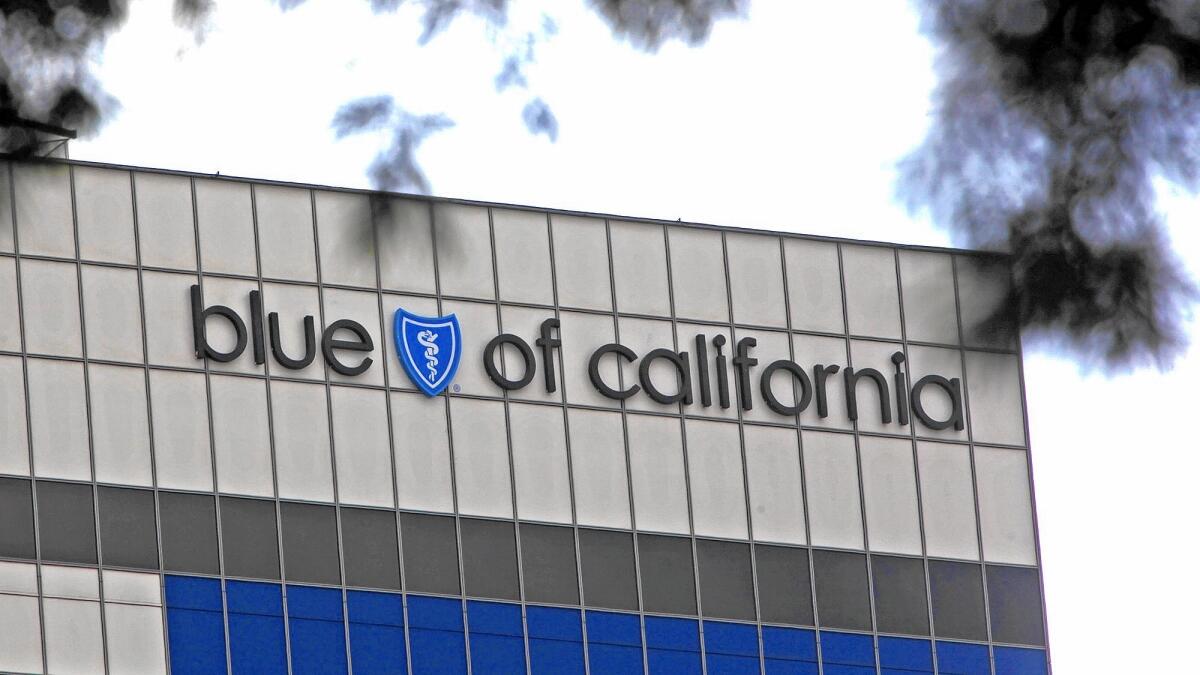Blue Shield seeks to avoid disclosing its price for Care1st

Nonprofit insurer Blue Shield of California, already under scrutiny for its huge cash reserves and lack of disclosure, is refusing to say how much it’s spending to acquire a Monterey Park insurance company and is seeking confidentiality from state regulators.
The California Department of Managed Health Care said Friday it was still weighing Blue Shield’s request for confidentiality after receiving a public-records request from The Times and being asked to hold a public hearing on the deal by a former company official.
The documents in question pertain to Blue Shield’s proposed acquisition of Care1st, a health plan with more than 500,000 members.
The companies didn’t disclose the terms when the transaction was announced in December. They asked regulators to keep certain details out of public view in filings submitted to the state for review Jan. 30.
Blue Shield said it has always intended to disclose the price once the deal closes later this year. Industry analysts have estimated that the company might be spending up to $1.2 billion for Care1st.
“We’re not trying to hide anything,” said company spokesman Steve Shivinsky. “It was always our intention to be transparent.”
All this comes on the heels of The Times reporting this week that the giant nonprofit health insurer had lost its longtime exemption from state income taxes in August after a lengthy audit.
The disclosure of the California Franchise Tax Board decision raised fresh questions about Blue Shield’s $4.2 billion in financial reserves, record of large rate increases and multimillion-dollar executive salaries.
Health-policy experts said the release of information about the deal is warranted given the questions about the insurer’s huge buildup of reserves that are being used to make the purchase.
“I think a nonprofit insurer building up these tremendous reserves should be accountable for how it uses that money,” said Gerald Kominski, director of UCLA’s Center for Health Policy Research. “The scrutiny is long overdue.”
The San Francisco insurer is protesting the state’s ruling on tax-exempt status, and it said it plans to remain a nonprofit regardless of the outcome.
The tax board said it doesn’t comment on the reasons for revocation nor does it release audits.
Blue Shield said it sought confidentiality from state regulators to honor the terms of its agreement with Care1st to keep the price private until the deal closes in the second or third quarter of 2015.
Shivinsky said the transaction “will put our reserves at a level consistent to where they should be for a company our size.”
The deal, if approved by regulators, would mark Blue Shield’s first participation in Medi-Cal, the state’s Medicaid program for the poor.
Care1st has about 470,000 people in Medicaid managed-care plans as well as 46,000 Medicare patients. The large majority of Care1st members are in Los Angeles and San Diego counties, but the company also has patients in Arizona and Texas.
Blue Shield is California’s third-largest health insurer, with 3.4 million members and $13.6 billion in revenue last year.
Some publicly traded health insurers don’t immediately disclose the price of certain deals, and the amount surfaces later in securities and regulatory filings.
But some consumer advocates say Blue Shield shouldn’t be acting like its for-profit rivals since it has received taxpayer subsidies for years and should be more open in its dealings.
Blue Shield critic Michael Johnson, the company’s former public policy director, sent a letter to the managed healthcare agency Friday criticizing the company’s secrecy and asking for a hearing on the Care1st acquisition.
“This is a huge expenditure of community assets,” Johnson said. “Is this deal going to result in a billion-dollar-plus increase in the community benefit provided by Blue Shield? Or is it just Blue Shield building up its empire?”
A spokesman for the Department of Managed Health Care couldn’t be reached for comment about the request for hearings.
This week, Johnson launched an online petition calling on Blue Shield to convert into a for-profit company and transfer billions of dollars in assets to the public that could be used to strengthen healthcare safety-net programs such as Medi-Cal.
Ana Gupte, a healthcare analyst at Leerink Partners, said the estimated price of $1.2 billion that Blue Shield negotiated is appropriate for a health plan specializing in Medicaid.
She said that amount “for that size of Medicaid assets sounds reasonable.”
Twitter: @chadterhune







